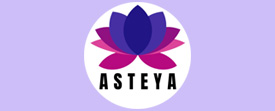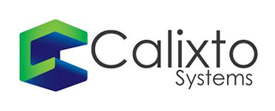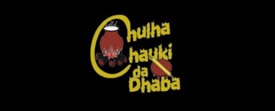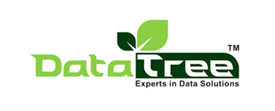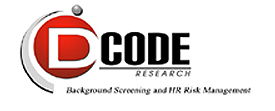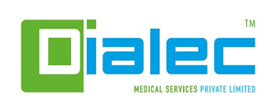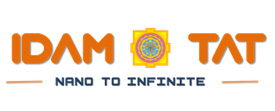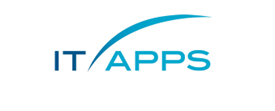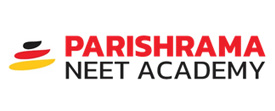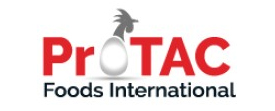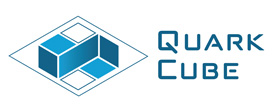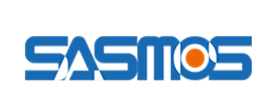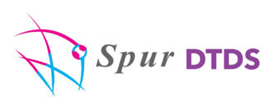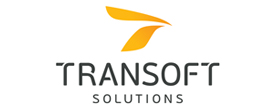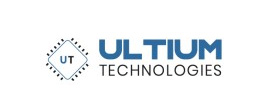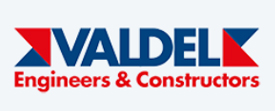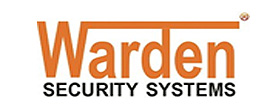ISO Certification
Secure ISO certification to enhance your business credibility and quality standards. We assist with documentation, audits, and approvals for certifications like ISO 9001, ISO 14001, and more.

ISO certification is based on internationally established standards by the International Organisation for Standardisation (ISO). This globally recognised authority develops guidelines to improve quality, safety, and efficiency across various industries. Certification, as defined by ISO, is a documented assurance provided by an independent certification body, confirming an organisation's compliance with specified management standards. This process makes sure that your business operates according to globally recognised guidelines and best practices.
The ISO 9001 certification, among the most widely implemented standards worldwide, signifies a commitment to Quality Management Systems. Studies indicate that over 1 million organisations across 170 countries hold ISO 9001 certification, highlighting its role in improving efficiency and enhancing customer satisfaction. Similarly, ISO 27001 is an important standard for businesses prioritising information security, and protecting sensitive data from unauthorised access.
Obtaining an ISO certification not only gives you a competitive advantage but also builds trust with clients and stakeholders. Whether in manufacturing, IT, healthcare, or other industries, aligning with ISO standards promotes regulatory compliance, minimises risks, and establishes best practices in operations.
Why to Choose Benchmark
We have established ourselves as the most trusted partner for your business for ISO registration. With a proven track record in helping organisations across industries, we at Benchmark simplify the complexities of your ISO registration process, helping your business meet global standards effectively. Our team brings unmatched expertise and a deep understanding of industry requirements, making us the ideal choice for your ISO registration journey.
Here is a list of things we do about your ISO registration.
- Expert consultation to identify the appropriate ISO standard for your business.
- Detailed gap analysis and compliance assessment.
- Assistance with documentation, policy creation, and operational alignment.
- Employee training to integrate ISO standards effectively.
- Pre-certification audits to identify areas for improvement.
- Coordination with accredited certification bodies.
- Post-certification support, including periodic audits and updates.
Our Services
At Benchmark, we offer a diverse range of specialised services under ISO Registration to serve the unique requirements of businesses across industries. Our services are made to address every technical and procedural aspect of the certification process, helping you integrate your operations with international standards.
Our service offerings under ISO registration are:
- Assistance in selecting the appropriate ISO standard aligned with your organisational goals.
- Interpretation and application of ISO norms to industry-specific processes and operations.
- Development of Quality Management Systems (QMS), Information Security Management Systems (ISMS), and other management systems.
- Preparation of compliance frameworks following international standards.
- Guidance on risk management frameworks and corrective action plans.
- Conducting management reviews and internal audits for certification readiness.
- Customised training modules for process owners and compliance teams.
- Improved integration of ISO protocols into supply chain management and operational workflows.
- Preparation of audit trails and compliance reports for certification bodies.
- End-to-end coordination with external certification bodies for formal evaluation.
Classes and Categories of ISO Certification
ISO certifications are categorised based on the specific needs of industries and organisations, providing custom approaches to quality, safety, and operational standards. Understanding the categories helps your business identify the most relevant certification for your operations.
| Class | Category | Application |
|---|---|---|
ISO 9001 |
Quality Management Systems (QMS) | Focuses on improving customer satisfaction through consistent quality standards in products and services across industries. |
ISO 14001 |
Environmental Management Systems (EMS) | Helps in minimising the environmental impact by implementing effective environmental policies and practices. |
ISO 27001 |
Information Security Management Systems (ISMS) | Protects sensitive organisational data and ensures information security measures against cyber threats and breaches. |
ISO 45001 |
Occupational Health and Safety Management Systems (OHSMS) | Promotes workplace safety, reducing risks and preventing accidents for employees and stakeholders. |
ISO 22000 |
Food Safety Management Systems (FSMS) | Ensures safe food handling, preparation, and distribution across the food and beverage industry. |
ISO 50001 |
Energy Management Systems (EnMS) | Focuses on optimising energy consumption and improving energy efficiency across operations. |
ISO 13485 |
Medical Devices Quality Management Systems | Specific to the healthcare and medical device sectors, ensuring compliance with regulatory and customer requirements for medical products. |
ISO 37001 |
Anti-Bribery Management Systems | Provides a framework to prevent, detect, and address bribery risks within an organisation's operations and supply chains. |
ISO 20000 |
IT Service Management | Targets IT service providers, focusing on delivering high-quality IT services to meet customer and business requirements. |
Documents Required for ISO Registration
To get started with the ISO registration process, it is essential to provide accurate and complete documentation. Below is a list of essential documents typically required for ISO registration:
- Business registration certificate and company incorporation documents.
- Details of the organisation's structure, including hierarchy and reporting lines.
- Scope of business activities to be covered under the ISO certification.
- Existing quality management or operational manuals.
- Standard operating procedures (SOPs) for key processes.
- Records of internal audits and compliance checks.
- Employee training records and skill evaluation forms.
- Evidence of process flowcharts or workflow documentation.
- Copies of regulatory licences and permits relevant to the industry.
- Proof of prior certifications, if applicable (e.g., HACCP, GMP).
- Risk management policies and incident response plans.
- Financial statements or annual reports for operational transparency.
Our Process for ISO Registration
At Benchmark, we have a structured and efficient process to guide businesses through ISO registration. Our approach is made to your organisation's unique needs, ensuring that every step is executed with precision and professionalism. Here is how we facilitate ISO registration for our clients:
Step 1: Understanding Client Requirements
We start by conducting an initial consultation to understand your business needs, goals, and industry-specific requirements. This helps us identify the most relevant ISO standard and outline a custom plan of action.
Step 2: Gap Analysis
Our experts perform a detailed gap analysis to assess your current processes and identify areas where they fall short of the chosen ISO standard. This analysis serves as the foundation for building a robust compliance framework.
Step 3: Planning and Documentation
We create a detailed roadmap for the certification process, including timelines, responsibilities, and milestones. Our team also assists in filing and refining essential documents such as quality manuals, standard operating procedures (SOPs), and policies.
Step 4: Implementation Support
We work closely with your team to integrate the ISO requirements into your daily operations. This includes employee training, process adjustments, and system upgrades to align with the standard's guidelines.
Step 5: Internal Audit
Once the processes are in place, we conduct a thorough internal audit to evaluate compliance levels. Our team provides detailed feedback and actionable recommendations to address any non-conformities identified.
Step 6: Pre-Certification Review
Before the final audit, we perform a pre-certification review to ensure your organisation is fully prepared. This involves verifying documentation, checking implementation effectiveness, and simulating audit scenarios.
Step 7: Certification Audit Coordination
We coordinate with an accredited certification body to schedule and facilitate the final certification audit. Our team provides on-site support and handles all communication with the auditors to ensure a smooth process.
Step 8: Certification and Beyond
Once your organisation successfully achieves ISO certification, we offer ongoing support for periodic audits, renewals, and updates. This helps you maintain compliance and continuously improve your operations.
Checklist for ISO Registration
ISO registration requires thorough preparation and meticulous attention to detail. At Benchmark, we help you understand the certification process by ensuring all critical elements are addressed. Use the following checklist to ensure your organisation is fully prepared for ISO registration:
- Identify the appropriate ISO standard for your business requirements.
- Define the scope of certification to outline processes and departments involved.
- Conduct a preliminary assessment to evaluate existing systems and processes.
- Develop a compliance strategy aligned with the chosen ISO standard.
- Assign responsibilities to key personnel for ISO implementation.
- Establish a documentation management system for maintaining policies, procedures, and records.
- Provide training and awareness programmes for employees on ISO requirements.
- Implement risk management practices and incident response protocols.
- Conduct internal reviews to monitor progress and identify improvement areas.
- Prepare an audit trail with evidence of compliance for certification.
- Coordinate with an accredited certification body for scheduling the audit.
- Set up a mechanism for ongoing monitoring and periodic reviews post-certification.
Non-Compliance Issues to Avoid
Non-compliance with ISO standards can lead to operational inefficiencies, reputational damage, and financial penalties. At Benchmark, we assist organisations in identifying and avoiding risks to give a smooth path to certification. Below are common non-compliance issues that businesses should address:
- Incomplete or outdated documentation of policies and procedures.
- Failure to define the scope of the management system clearly.
- Insufficient employee training and awareness of ISO requirements.
- Lack of a robust risk management framework and incident response plan.
- Non-conformance to standard operating procedures (SOPs).
- Inconsistent internal audit practices or absence of audit records.
- Poor record-keeping of operational and compliance data.
- Misalignment between documented processes and actual practices.
- Inadequate corrective actions for previously identified gaps.
- Delayed responses to non-conformance reports and audit findings.
- Absence of measurable objectives for continuous improvement.
Conclusion
As a business obtaining an ISO certification is not just a compliance milestone, but it is a strategic investment for your organisation's growth, reputation and operational excellence. By complying with international standards, your business shows its commitment to quality, security, and sustainability, fostering trust among clients, stakeholders, and regulatory bodies.
At Benchmark, we are dedicated to simplifying the ISO registration process, guiding you every step of the way with expertise and precision. From the initial assessment to post-certification support, our customised solutions help your organisation achieve its certification goals effectively.
Get in Touch
Are you ready to improve your organisation to global standards? Contact Benchmark today to schedule a consultation with our ISO certification experts.
FAQs
How long does the ISO certification process take?
The time required for ISO certification depends on the complexity and size of your organisation, as well as the chosen standard. On average, it can take anywhere from a few weeks to several months. Factors like documentation readiness, employee training, and implementation speed also play a significant role.
Is ISO certification mandatory for all businesses?
ISO certification is not legally mandatory but is often required in specific industries or for certain contracts. Many businesses seek ISO certification to gain a competitive edge, meet client expectations, or comply with industry best practices.
Do ISO certifications need to be renewed?
Yes, ISO certifications are valid for a specific period, typically three years. During this time, surveillance audits are conducted periodically to maintain compliance. After three years, organisations must undergo a recertification audit to renew their certification.
Can an organisation lose its ISO certification?
Yes, an organisation can lose its certification if it fails to maintain compliance with the standard's requirements. This can occur due to poor documentation, non-conformance during surveillance audits, or significant changes in operations without updates to the management system.
What is the role of employees in ISO certification?
Employees play an important role in achieving and maintaining ISO certification. Their involvement includes following standard operating procedures, attending training sessions, and participating in internal audits. A well-trained team is key to long-term compliance.


